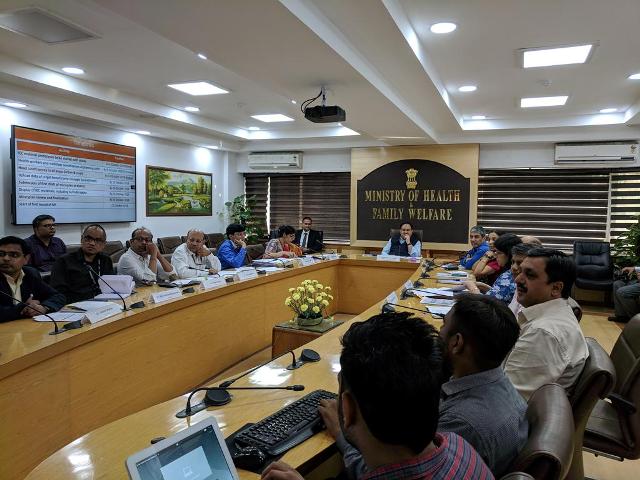Union Health Minister reviews preparedness of states for Mission Indradhanush
The 1st round will be from 22nd October 2018, the 2nd round will be from 22nd November 2018 and the 3rd round will be from 22nd December 2018 onward.

- Country:
- India
Shri J P Nadda, Union Minister of Health and Family Welfare today reviewed the preparedness for the upcoming rounds of Mission Indradhanush (MI) with the Health Ministers and Principal Secretaries of 17 States/UTs through video conferencing. During the review interaction, Shri Nadda issued clear directions and assured all support to the States for achieving targets of full immunization under Mission Indradhanush. He exhorted them to leave no stone unturned to ensure that the left out and missed out children and pregnant women of the routine immunization program in the country are provided full protection under this initiative. “We are fully confident to achieve the ambitious target of 90% full immunization coverage in the country as set by Hon’ble Prime Minister, Shri Narendra Modi Ji”, he said.
Three rounds of immunization drives, of seven working days each (excluding Routine Immunization Days, Sundays and Holidays) are planned in the 75 districts. The 1st round will be from 22nd October 2018, the 2nd round will be from 22nd November 2018 and the 3rd round will be from 22nd December 2018 onward.
Shri Nadda stated that special focus should be given on identification of unvaccinated and partially vaccinated children and pregnant women in high-risk, hard-to-reach areas like hamlets, brick kilns, tribal areas, forest areas, construction sites, migrant settlements, vacant sub-centres, urban slums etc. He further said that head-count survey by ASHAs and Anganwadi workers should be undertaken to cover all such areas and a sample verification of survey should be done by ANMs/Supervisors.
Stressing on the need for need-based plans, the Union Health Minister said that micro plans should be prepared on the basis of the estimated number of beneficiaries (through the head-count survey) and distances from cold chain points. “Mobile teams to be used wherever required and mobility support to be provided to ANMs deployed to cover vacant sub-centres,” he added. He also laid emphasis on awareness generation activities and said that the focus of IEC activities should be on increasing awareness on the benefits of immunization and alleviating apprehensions of ‘Adverse Events Following Immunization (AEFI)’. Emphasis should be on mid-media and inter-personal communication (IPC) activities like mothers’ meeting, rallies, street-plays, wall paintings etc., he said.
He also emphasised on the need for regular review of planning and implementation of all three rounds of MI should be done in State and District Task Force Meetings to identify gaps in implementation and their resolution in a decentralized manner.
Mission Indradhanush (MI) is one of the flagship schemes of Government of India that aims at achieving full immunization coverage (FIC) of 90% by December’18 through a focus on unvaccinated and partially vaccinated children and pregnant women in pockets of low immunization coverage, high-risk and hard-to-reach areas.
A total of five phases of Mission Indradhanush have been completed between April 2015 and February 2018 covering 537 districts. It has also been included as one of the schemes under Gram Swaraj Abhiyan (GSA) and Extended GSA during April 2018 to September 2018 covering 16,850 and 48,929 villages (in 117 aspirational districts) respectively. Till 5th October 2018, a total of 334.48 lakh children and 86.04 lakh pregnant women have been vaccinated through these drives. A survey conducted in 190 districts/urban areas covered in Intensified Mission Indradhanush (5th phase of MI) have shown an average increase of 18.5% points in Full Immunisation Coverage as compared to NFHS-4.
(With inputs from PIB)










